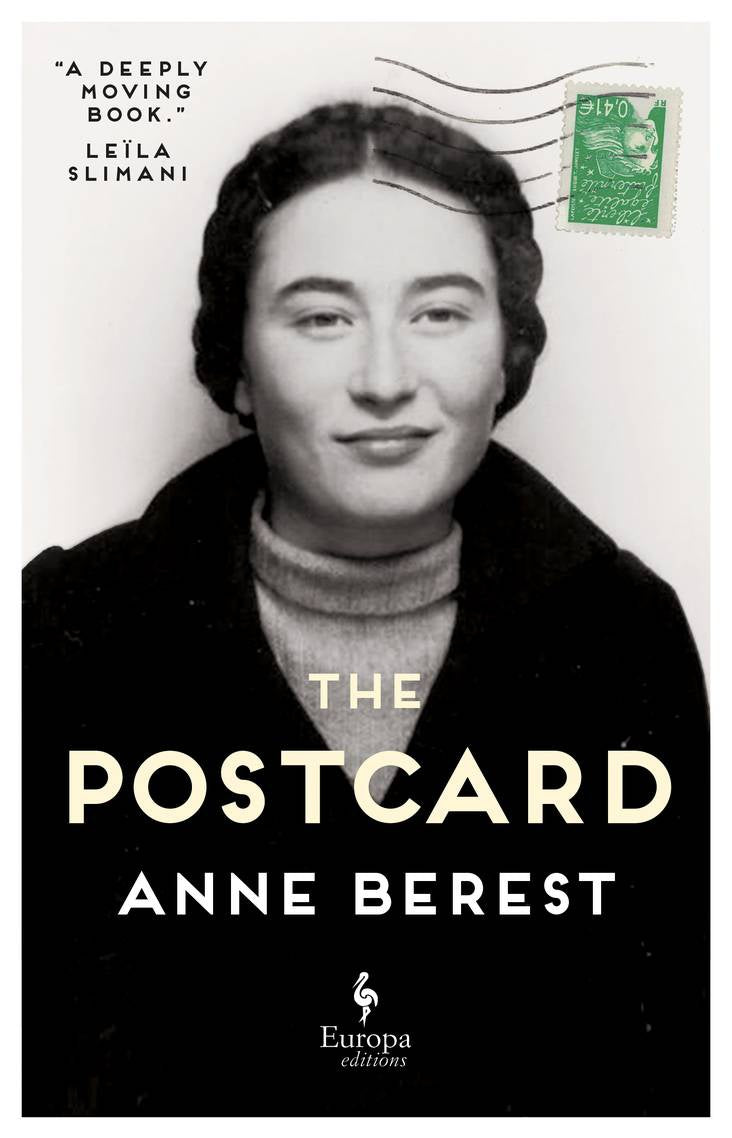Anne Berest
Postcard
Postcard
Couldn't load pickup availability
Susan's Review
This remarkable story of four generations of a Jewish family takes us into morally confronting and profoundly moving terrain across Europe. It begins when the author Anne Berest, a well-known French writer and actor, learns that her mother has received an anonymous postcard marked with the names of four family members who were murdered at Auschwitz: Anne’s great-grandparents Ephraïm and Emma, and their children Noémie and Jacques. Nothing else but those four names, written in ball point pen, sent from Paris decades earlier. This disturbing postcard – is it a warning, a mocking of remaining family members, a form of remembrance? – impels Anne and her mother Lélia to find out its origins and to slowly uncover the secrets of their family’s history. The Postcard is a work of autofiction that skilfully blends detective fiction, personal archives, historical research and imaginative re-creation to expose the brutality of anti-semitism from pre-World War One to the present day. The harrowing realities of the concentration camps. The cowardly French collaboration with the Nazi regime during World War Two. It also celebrates the courage of those who chose to resist tyranny and injustice. The Postcard brilliantly illuminates particularly dark periods in modern European history, while also affirming the value of family, cultural tradition and political solidarity. The cover photo is of a serene, beautiful Noémie, who from a very young age had wanted to be a writer. The fact that the beginning of her novel is later found by her living relatives is a poignant testament to the power of language in the face of a terrible silencing.
Publishers Reviews
January 2003. The Berest family receive a mysterious, unsigned postcard. On one side was an image of the Opera Garnier; on the other, the names of their relatives who were killed in Auschwitz: Ephraim, Emma, Noemie and Jacques.
Years later, Anne sought to find the truth behind this postcard. She journeys 100 years into the past, tracing the lives of her ancestors from their flight from Russia following the revolution, their journey to Latvia, Palestine, and Paris, the war and its aftermath. What emerges is a thrilling and sweeping tale that shatters her certainties about her family, her country, and herself.
At once a gripping investigation into family secrets, a poignant tale of mothers and daughters, and an enthralling portrait of 20th-century Parisian intellectual and artistic life, The Postcard tells the story of a family devastated by the Holocaust and yet somehow restored by love and the power of storytelling.
Share


